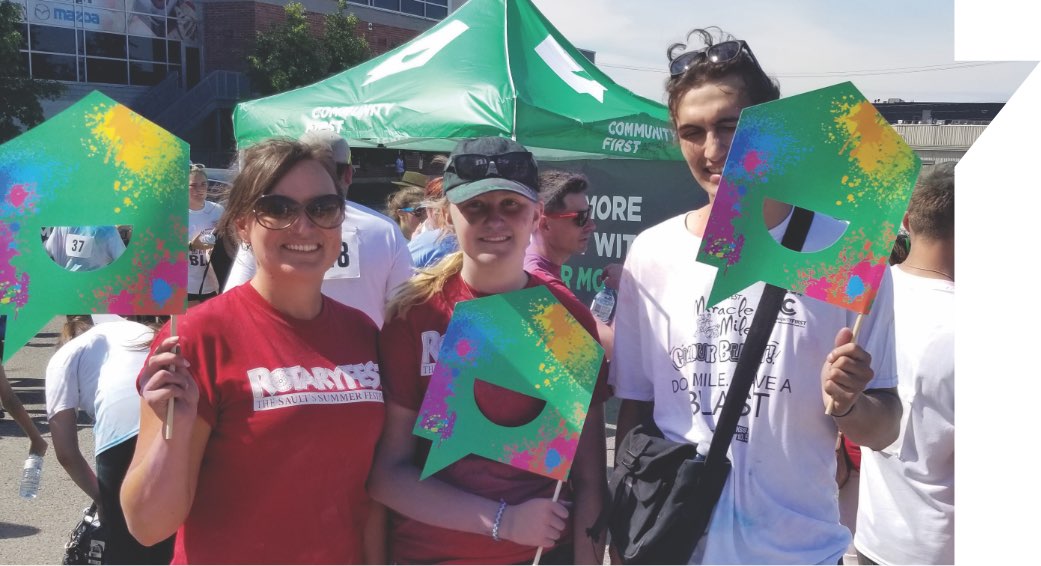HOW TO BE AN ALLY TO PROMOTE FINANCIAL EQUALITY
Friday, February 18, 2022
Our previous blog explored financial inequality and the various societal factors that cause and perpetuate this issue. We had the opportunity to speak with YNCU’s Systems Administrator, Rabo Oshobe, about how members and financial professionals can take direct action. Rabo shares his expertise and helps us understand how to better address financial inequality, promote access to resources and improve financial literacy.
How can we support each other?
Supporting each other starts with understanding each other's struggles and experiences. Rabo came to Canada when he was 19, after growing up in Nigeria where wealth inequality is very extreme. His father came from a poor family and his mother was able to start a business with just a high school diploma. Rabo’s father taught him the importance of education and how to apply what he learned to obtain a steady paying job.
Most people in Nigeria have not built generational wealth, which significantly impacts how people manage their finances and their interest in financial education. Rabo was shocked when he came to this country, noticing the wealth made in Canada stays in Canada. Many Canadian children have instant access to generational wealth. The money simply gets spread across family members and passed on to kids and grandkids.
The Black population now accounts for 3.5% of Canada's total population and the majority of those working in finance are white. This places a bias on the advice and support given to the community. When Rabo arrived in Canada as a student, he wished someone would have reached out to teach him how to manage his finances. Financial literacy isn’t something that’s taught in schools, and general financial advice tends to exclude the needs and concerns of younger demographics. As many others share similar experiences to Rabo’s, more needs to be done to provide better support and access to resources.
How do we recognize financial inequality?
In order to recognize financial inequality, we need to consider different lifestyles and backgrounds. This ensures all groups and individuals receive the financial education they need based on their situations. We need to target minority families with programs, loans and education to help them get to where they need to be. Not only is this good for the economy, it allows the children in these families to get the education and opportunities they deserve.
How can we be better allies in promoting financial equality?
Having open conversations about money with your friends, family and colleagues is a great way to promote financial equality. Being open about what you earn, how you invest and your money management strategies can help those who may not have the same financial knowledge. In today’s society, community-based spaces like social media allow us to learn and share ideas when it comes to finances.
Who do we need to call on to drive change?
Not until we have a strong financial framework built into our education system will we start to see change. Ideally, we would see school systems stepping up and championing this important initiative. Financial education should be offered in schools and at all levels of education. It should also be free and readily available to everyone. Teaching children how to financially support themselves from a young age could go a long way in helping us drive change.
Whose voices need to be amplified?
The voices of minority groups need to be amplified. Historically, underrepresented people have less access to financial resources and are therefore less likely to build generational wealth. When given the opportunity, minority communities are eager to share what they know and what they have with each other in terms of resources, knowledge and money.
An amazing example of this was when the community came together to raise money for Rabos’ father to be the first to go to school in their village. This allowed him to get a good job and in turn give back to the community. The spread of wealth has a significant impact on these communities and their success.
For financial professionals, what needs to be done as an educator in this space?
If we want to drive change, we need financial professionals who are willing to openly share their skills with those who reach out from other countries. We need more people going out into the community and in classrooms to reach all groups, especially younger generations. Information should be broken down in a way that is easily understood and accessible. We should also encourage people of all cultures to have these conversations with their kids so they can get a head start with their finances.
Rabo is so grateful for the amazing team at YNCU for giving him the opportunity to work there and learn more about finance. He immediately felt welcomed by the YNCU team. He also feels his personal experiences were met with empathy and understanding.
We need more compassion when it comes to finances. Feel what people feel, match their motivation and try to understand where they are coming from. Money and mental health are heavily intertwined, therefore financial education and literacy has the potential to significantly impact someone’s life for the better.
Addressing financial inequality will take time and effort. This issue needs to be recognized by those affected by it and those who benefit from it. Not until we all have equal access to financial education and resources will we start to see true and lasting change.
To learn more about racial inequality as it relates to money, check out our latest blog, Sharing Resources: Exploring Racial Inequality & Money.
Don’t forget to follow us on Facebook, Instagram, Twitter or LinkedIn for more honest money talk tips!











